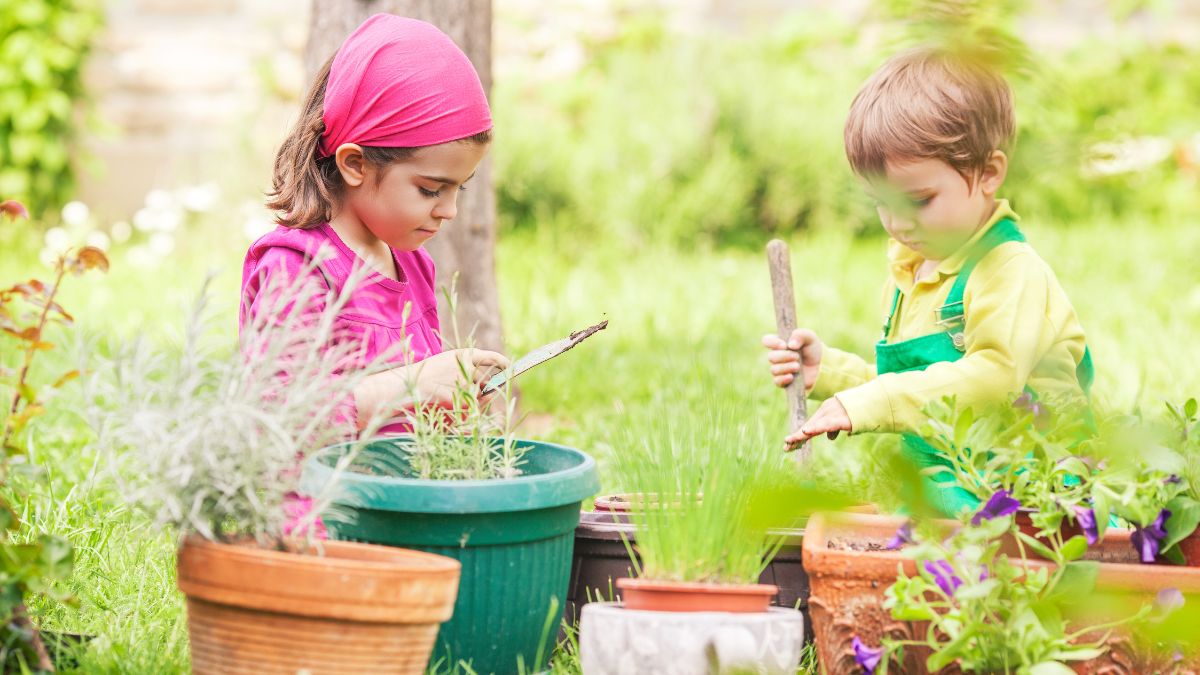Summer is quickly upon us, and now is the time to don the sun hat and work gloves and invite the kids into the garden to prepare for a season of bounty and beauty. Whether you tend to edibles, fancy yourself a green thumb with Flora and Fauna, or dabble in a bit of both, when children get involved, there’s a good chance you’re raising more than just vegetables and flowers; you’re growing a mind and cultivating a natural curiosity.
Improve Motor Skills
Gardening provides the perfect venue in which to continue teaching kids, even when school is out of session. Lessons in science and math abound, and it’s the astute adult who is able to recognize and seize the opportunity to pass along such invaluable information. Sowing a tray of vegetable and flower seeds indoors is, of course, only the beginning of one’s gardening adventure, and it’s a great way to teach young children about the lifecycles of plants.
Introduction to Science and Math
Little ones will feel important learning new vocabulary terms such as germinate, pollination, harvest, and sow forth! Children can help with measuring correct depth and spacing when transplanting seedlings, and they will delight in keeping a journal in which they sketch plants in various stages of development. Have them take note of which pests and beneficial bugs frequent your gardens, and have older kids go online to research methods of naturally discouraging unwanted rodents and animals, such as rabbits and deer.
Promote Healthy Eating
Edible gardens provide wonderful ground for teaching children from where food originates. Explain to them that what is served on their dinner plate doesn’t grow on a supermarket shelf but rather in soil rich in organic nutrients. Remind children that it takes farmers months of hard work to grow their crops, and that they often have to contend with unpredictable weather and circumstances, such as late frost or drought or lack of funding. If possible, take a group of kids to a Farmer’s Market where they can meet the local people who grow food for their community. Let them see, touch, feel, and taste freshly picked fruits and vegetables while learning about the differences between conventionally and organically grown produce. Help them learn to attach a name and face to their food in order that they may appreciate it more fully.
Fun and Adventure
When planting flowers, choose varieties that are hearty and easy for children to grow themselves. Giving them their own patch of earth and packets of Marigold and Sunflower seeds will help to instill a sense of responsibility, and they will take pride in watering and removing weeds. Discuss the direct correlation between thriving plants and providing proper care.
Conclusion
Working with plants is great for the mind, body, and spirit, and children of all ages will flourish if given the opportunity to establish their roots and grow with the garden.
- Key Strategies to Mitigating risks in Rental Property Investments
- The Essential Role of Property Management Companies
- The Ultimate Guide to Handling Evictions and Tenant Conflicts
- The Hidden Impact of Taxes and Insurance Costs
- Protect Your Property: Essential Practices for Effective Tenant Screening

